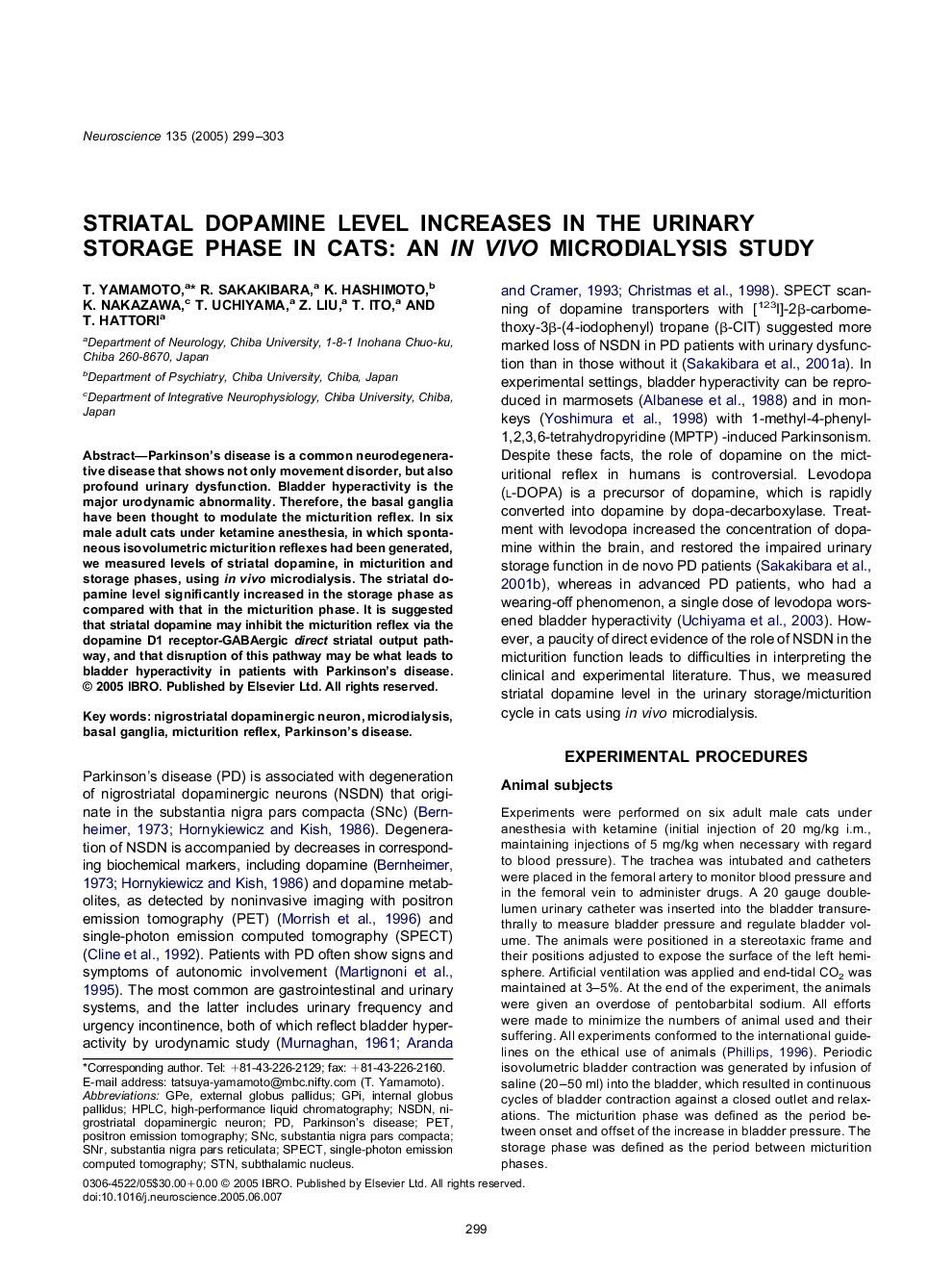| Article ID | Journal | Published Year | Pages | File Type |
|---|---|---|---|---|
| 9425774 | Neuroscience | 2005 | 5 Pages |
Abstract
Parkinson's disease is a common neurodegenerative disease that shows not only movement disorder, but also profound urinary dysfunction. Bladder hyperactivity is the major urodynamic abnormality. Therefore, the basal ganglia have been thought to modulate the micturition reflex. In six male adult cats under ketamine anesthesia, in which spontaneous isovolumetric micturition reflexes had been generated, we measured levels of striatal dopamine, in micturition and storage phases, using in vivo microdialysis. The striatal dopamine level significantly increased in the storage phase as compared with that in the micturition phase. It is suggested that striatal dopamine may inhibit the micturition reflex via the dopamine D1 receptor-GABAergic direct striatal output pathway, and that disruption of this pathway may be what leads to bladder hyperactivity in patients with Parkinson's disease.
Keywords
Nigrostriatal dopaminergic neuronGPiSNCGPESTNSNRSubstantia nigra pars reticulataexternal globus pallidusinternal globus pallidusSPECTParkinson’s diseasesubstantia nigra pars compactasingle-photon emission computed tomographyPositron emission tomographyMicturition reflexbasal gangliamicrodialysisSubthalamic nucleusPEThigh-performance liquid chromatographyHPLC
Related Topics
Life Sciences
Neuroscience
Neuroscience (General)
Authors
T. Yamamoto, R. Sakakibara, K. Hashimoto, K. Nakazawa, T. Uchiyama, Z. Liu, T. Ito, T. Hattori,
